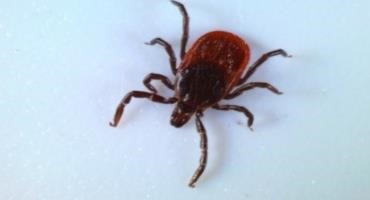By BRITTANI KIRKLAND
Penn State Extension is looking to engage fifty PA horse owners in a community research project on tick control to learn about the current presence of ticks on equine farms across the Commonwealth.

Are you finding ticks on your horses? If so, Penn State Extension researchers could use your help! Tick-related health issues are a growing concern in the equine industry. Because of this, Penn State Extension is looking to learn more about the current presence of ticks on equine farms across the Commonwealth and current management practices.
Penn State Extension is looking to engage fifty horse owners in a community research project on tick control at horse farms. Horse owners that choose to participate will be asked to attend an informational session via Zoom where they will be taught how to conduct a tick check. These sessions will be held on March 31 and April 4, 2022 from 7-8pm EST. Participants will only need to attend ONE of the informational sessions to assist with this research study. After the informational session, participants will then be asked to conduct a 5 to 10-minute tick check on their horse(s) twice a week for 7 weeks and report their local findings. Additionally, they will be asked to fill out a 10-minute survey explaining current tick management practices on their farm. All participants will receive a free Penn State Extension Equine Tick Check Kit and mailing kits and postage to send collected ticks for identification and testing.
Source : psu.edu